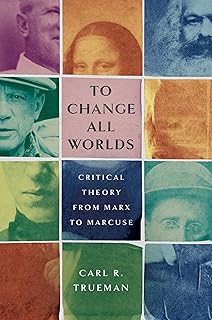William Paris’s book “Race, Time, and Utopia: Critical Theory and the Process of Emancipation” delves into the realms of critical theory, Africana philosophy, and critical philosophy of race. Paris skillfully weaves together the thoughts of key black liberation thinkers within his unique critical framework, offering a utopian perspective on social transformation. By redefining utopia through the lenses of social temporality and critical theory, Paris challenges traditional notions of critique and normative sources of change.
Utopian consciousness, as Paris argues, is not detached from our current social realities but rather emerges from the remnants of past struggles. He explores the concept of non-synchrony, where suppressed inheritances provide insights into social issues and potential resolutions. Paris’s analysis of racial domination as racial fetishism distinguishes between racism and the practical persistence of racial hierarchy post-debunking of biological race theories. He links racial domination to capitalist structures, highlighting the need to challenge the capitalist organization of social time.
The intersection of race, time, and utopia converges on the idea of non-synchrony, where black liberation movements draw normative inspiration. Paris dissects the role of utopian consciousness in societal transformation, emphasizing the need for a holistic approach encompassing crisis awareness, utopian envisioning, and structural conditions conducive to change. Through the lens of key Africana figures, Paris illuminates the utopian potential embedded in struggles against racial domination.
Paris’s exploration extends to historical figures like W. E. B. Du Bois, Martin Delany, Marcus Garvey, and Frantz Fanon, each contributing unique perspectives on racial fetishism and utopian visions. He critically evaluates their approaches, highlighting the intricate relationship between race, time, and utopia. Paris’s analysis culminates in James Boggs’s vision of Black Power, which seeks to dismantle racial domination by challenging capitalist structures and reimagining social temporality.
While Paris’s work offers profound insights into the complexities of race, time, and utopia, some scholars raise concerns about the extensional vagueness of race categories within his framework. The book’s ambiguous treatment of race in relation to racial domination prompts a deeper exploration of the specificity of racial dynamics. Nevertheless, “Race, Time, and Utopia” stands as a significant contribution to critical theory and philosophy of race, paving the way for further research and scholarly discourse in these domains.
📰 Related Articles
- New Paris to Berlin Train Cuts Travel Time
- Expert Tips: Best Time to Visit Paris for Memorable Experience
- 2025 Paris Marathon: Iconic Race Through Paris Landmarks
- runDisney Announces Return with Exciting 2025-2026 Race Lineup
- Young Models Shine in Paris Fashion Show Extravaganza






